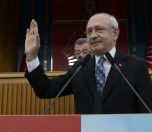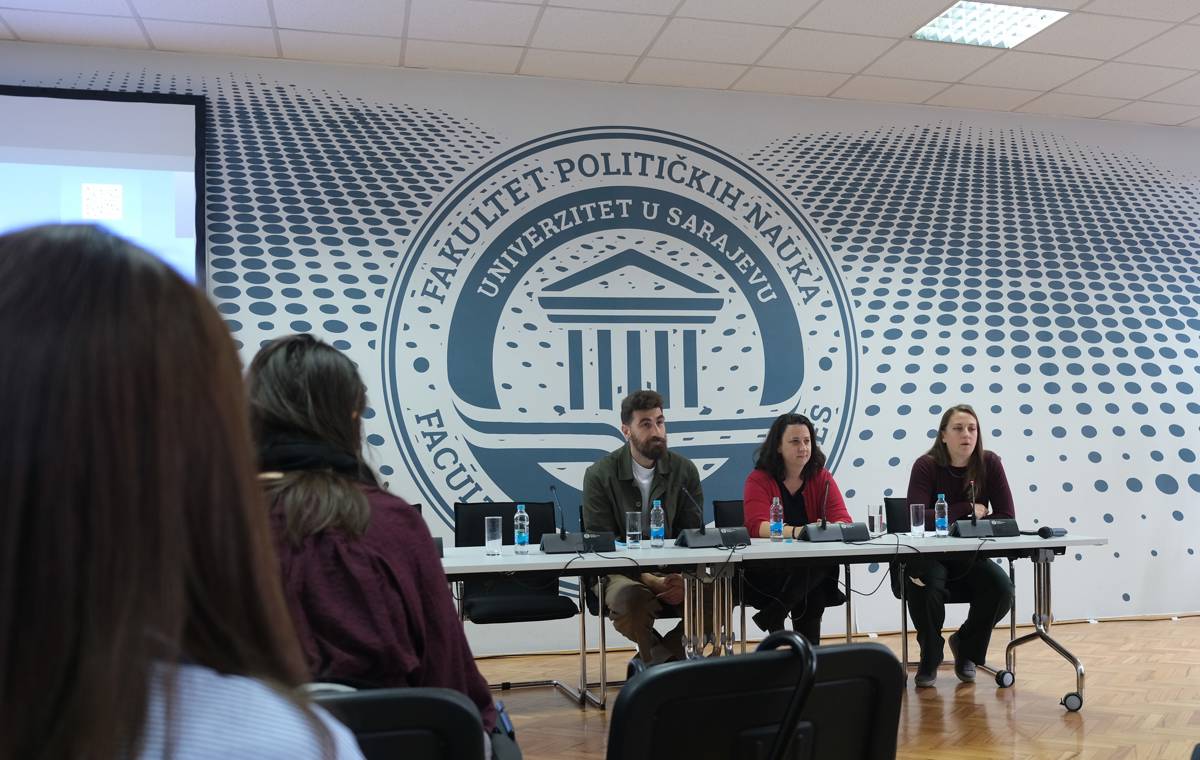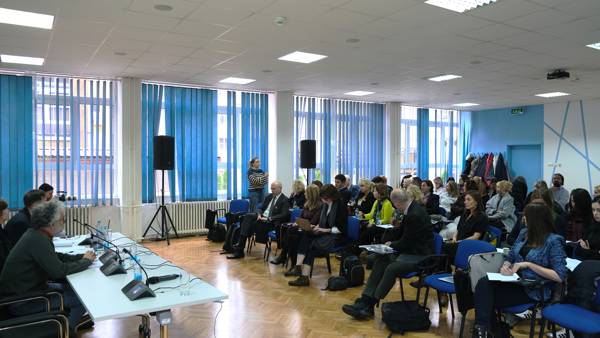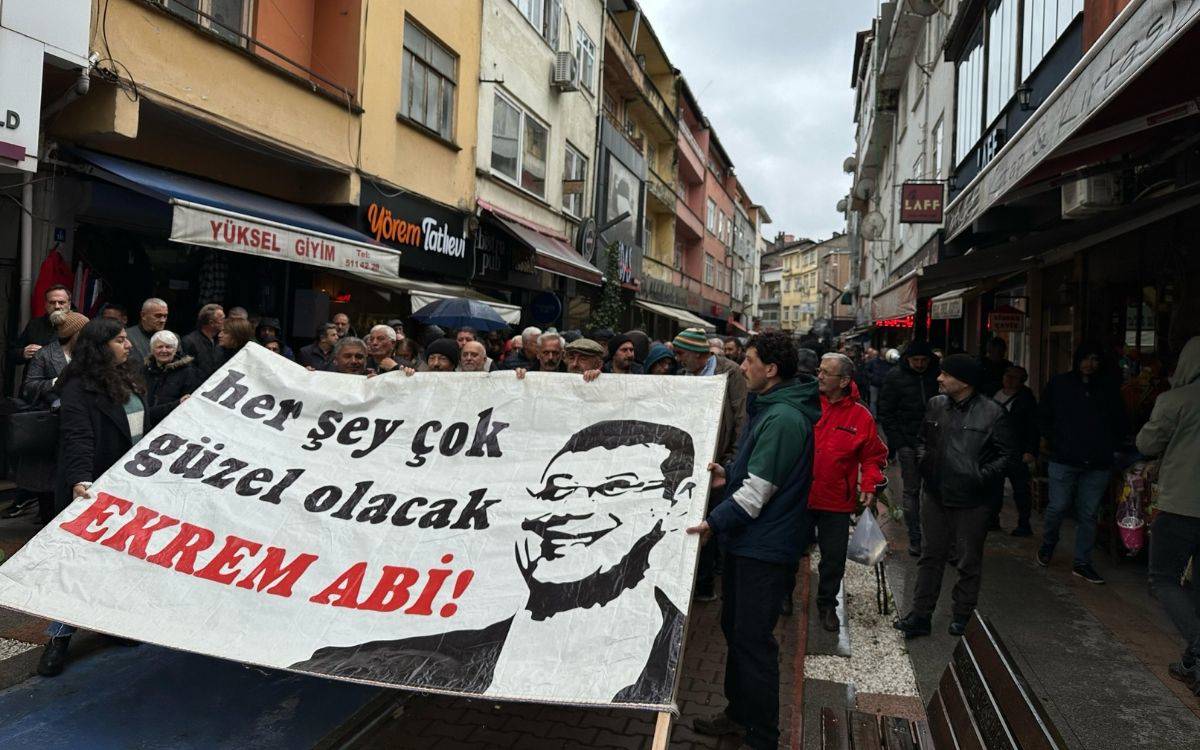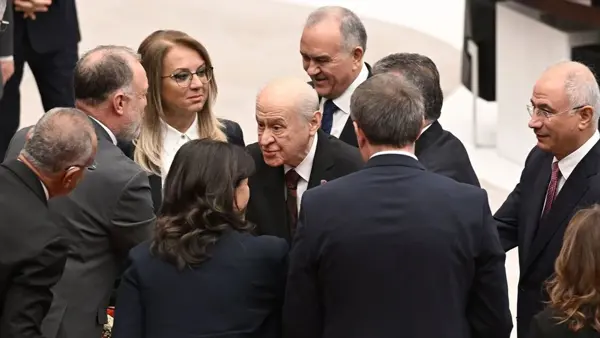Bahçeli and Erdoğan (Photo: AA/File)
After months of elaborations, President Recep Tayyip Erdoğan's Justice and Development Party (AKP) and their allies, the Nationalist Movement Party (MHP), on Monday put forward a draft bill to amend the election law.
According to the bill, the election threshold will be lowered from 10 to 7 percent, an expected change that will have little to no effect on the situation in the parliament.
The opposition's initial reaction that the move intends to save the MHP is misleading as the threshold applies to alliances and not to each party forming an alliance, according to both the current law and the new proposal. Thus, the MHP is in no danger of losing parliamentary representation.
The two allies had already announced their intention to lower the threshold in September, but what took months was apparently the fine adjustments that would supposedly maximize the number of their seats in the parliament.
CLICK - Why has the AKP-MHP bloc decided to lower the election threshold?
In order to achieve this goal, the law proposal changes the rules determining the number of seats won by each party in a polling district.
According to the current law, seats are first distributed to alliances in proportion to their respective voting rates and then distributed within alliances. The new bill takes alliances out of the equation to distribute seats directly to the parties proportionally, which would provide an advantage to the AKP and the MHP's People's Alliance.
A widely cited example about the possible outcomes of the new system was the 2018 election results in Niğde, a province with three seats in the parliament. In the last election, the People's Alliance won two seats with 64.36 percent of the votes and the opposition Nation's Alliance got one seat with a voting rate of 33.2 percent in the province. However, if the seats were distributed in accordance with the voting rates of the parties rather than the alliances, all three seats would be won by the People's Alliance parties; two seats for the AKP and one seat for the MHP.
If the 2018 elections were held under this system, the People's Alliance would win 36 more seats than it did while the Nation's Alliance would win 44 seats less, according to a calculation cited by Tanju Tosun, a political scientist, on Twitter.
More strikingly, the İYİ (Good) Party of the Nation's Alliance, the party with the fourth highest percentage of votes in the 2018 elections, would not win a single seat under the proposed system. The party got nearly 10 percent of the votes and 44 seats in that election.
Though it remains to be seen whether things will go as planned for the ruling alliance with their public support being significantly lower than it was in the last election.
In 2018, the combined voting rates of the AKP and the MHP was 53.66 percent whereas it is barely over 40 percent now, according to most opinion polls. Only one pollster in February found that the People's Alliance would get more than 45 percent of the votes.
"The alliance of the six" becomes useless
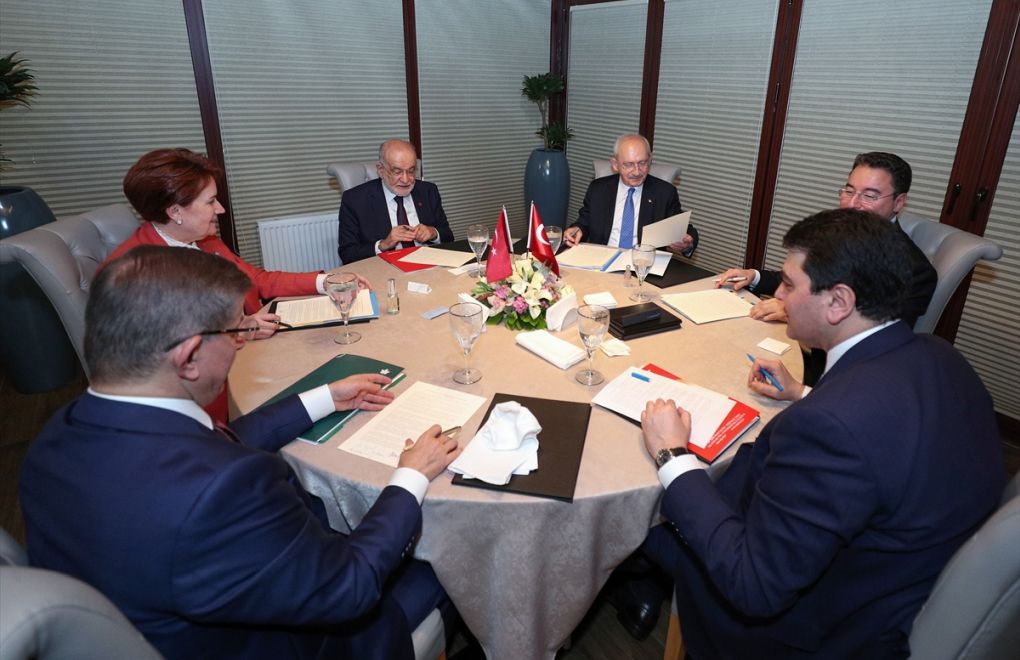 A round table meeting of the six opposition leaders in mid-February. (Photo: AA)
A round table meeting of the six opposition leaders in mid-February. (Photo: AA)
Yet, one thing Erdoğan has already achieved with the new system is to prevent the formation of a broader opposition alliance including the offshoot parties of his AKP: the Democracy and Progress (DEVA) Party led by the former economy minister Ali Babacan and former PM Ahmet Davutoğlu's Future Party (GP).
The DEVA and the GP, along with the Democratic Party, were expected to join the CHP, the İYİ Party and the Felicity Party (SP), which also shares the same Islamic roots with the AKP, in the Nation's Alliance for the next elections.
The six parties had been in touch for months and at the end of February, they signed a memorandum of understanding laying the conditions for the country's switch to what they called the "reinforced parliamentary system" if and when the AKP loses power.
The 50-page pamphlet published by the parties explaining how a parliamentary system works and what is rule of law like a Politics 101 textbook was not taken seriously by Erdoğan, but the possibility that they might form an election alliance apparently was.
With the proposed election law, such an alliance would be useless, as smaller parties would have no chance to get any seats in the parliament, as admitted by the spokesperson of the DEVA Party, İdris Şahin.
However, the six parties will have a joint presidential candidate regardless of whether they compete in the parliamentary election in an alliance or not, he told Halk TV's web portal. "What motivates this nation is the changing of the president and the presidential government system," he said.
One reason Erdoğan wanted to prevent the formation of such an alliance might be that the DEVA and the GP can attract the frustrated AKP voters, something that the CHP is not able to do in a highly polarized political environment.
While the voting rates of the DEVA and the GP are quite low between 1 and 3 percent, they could make a difference with the public support of the ruling alliance and the opposition being so close.
The opposition's solution
A counter-move by the opposition may be the candidates of the DEVA and the GP competing as the candidates of the CHP or, more likely, the İYİ Party and switching to their own parties once they are elected, as some reports suggested.
Many parties over decades have used this method to get around the 10 percent threshold, but it would require comprehensive and lengthy negotiations between the six parties to implement it in the most effective way.
One option might be that the CHP, which traditionally doesn't appeal to right-wing voters, competes in the elections separately and the other five parties, all of which are basically center-right parties with Islamist or nationalist backgrounds, gather under the banner of İYİ Party, the second-largest of the six parties.
The HDP
The new election system may also strengthen the Peoples' Democratic Party (HDP) as its voters are condensed in the country's predominantly Kurdish-populated regions, where it is either the first or the second largest party in most polling districts.
The party's voting rate is about 10 percent, according to the polls, and it may end up as the "kingmaker" if neither alliance can secure a parliamentary majority after the elections.
The HDP's support will also be crucial in the presidential election for the opposition to get the 50 percent plus one vote required for electing the president. (VK)






.jpg)
as.jpg)

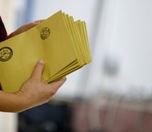
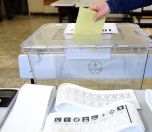
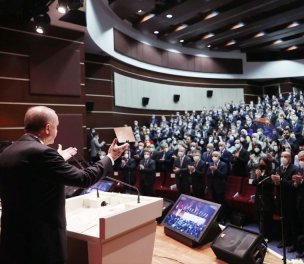
as.jpg)
